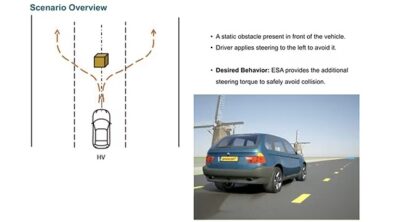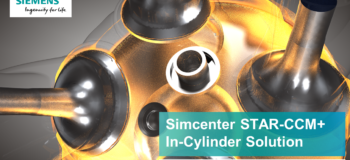The absolute relevance of teaching testing basics in the world of simulation
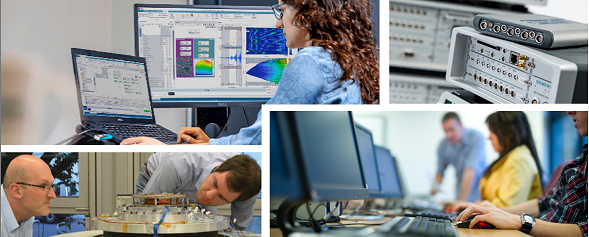
We’re rolling right along towards an important part of our Simcenter for Academia series: testing. Critical skills and know-how like system simulation, 3D simulation and testing are all high on the must-have list to land that first engineering job, or even internship. And knowing the basics of testing and how it relates to simulation excellence can easily be the difference between getting the job or not.
Ask any test engineer with a couple of decades of experience about the earlier days of engineering, and they will probably tell you that this is where the “real work” happened. Test engineers were the get-your-hands-dirty guys: gluing accelerometers on prototypes for runs on the test track, spinning components rigged with accelerometers on test benches, and taking apart engines in test-cell workshops and warehouse hangers. Where ever the hands-on part took place, these have traditionally been the locations where the “real” engineering took place – according to the test guys. Until now, that is.
With the dominance of simulation and digitalization, the computer screen has taken over this role. Highly accurate digital twins can predictive behavior to quite an accurate level – way before the first and, many times, final prototype is even constructed.
Only as good as the data
But, this doesn’t mean the days of the test engineer are numbered. Quite the contrary. Those highly accurate digital twins run on high-octane fuel – highly accurate test data. And this is where the importance of testing steps in. We can’t let the next generation forget about the importance of testing and running a proper test campaign with correct instrumentation. Testing will always be the step to validate that digital twin on that screen. Yes, we have to say goodbye to the days of prototype after prototype, but lab time and testing know-how will become even more vital to help the next generation deal with even more advanced digital twins, AI-driven applications and regenerative engineering.
As Gil Morris, recently retired program manager of the Siemens Digital Industries Software Global Academic Team, stated it so well in his last blog, “Simulation and digital twins are key tools to solve problems, but these simulations and digital twins are only as good as the data that goes in.” (read the complete article).
But how do you get that magical data is the question? And the answer: testing techniques. The right testing solutions can cover both experimental and analytical aspects of engineering. In other words, a good test run with accurate data can help the engineering team make the right design choices, verify the prototype or troubleshoot noise, vibration and durability issues.
It is obvious that learning testing as well as simulation best practices is an essential skill for engineering students. At Simcenter, we think the focus should be teaching the principles of noise, vibration and durability testing as well as the basics of digital signal processing to go from data acquisition to analysis. To help with this task, the Simcenter testing team offers two academic bundles for the academic institutions.
Simcenter testing academic bundles and free webinars
Universities can invest in specially priced Simcenter testing academic bundles. The bundle include everything you need to get started with testing: the Simcenter Testlab software, the Simcenter SCADAS data acquisition hardware and lots of online webinars, classes, and training options.
“In an educational context, Simcenter Testlab stands out for its amazingly user-friendly interface. There is no comparison when it comes to ease of use. I work daily with the system, but the many students and assistants who come and go are mostly not yet familiar with the software. Simcenter Testlab logically guides them through the testing process, minimizing the time spent on getting acquainted with the software functionalities” explains a test engineer from the RWTH institute from the Aachen University (read the complete story).
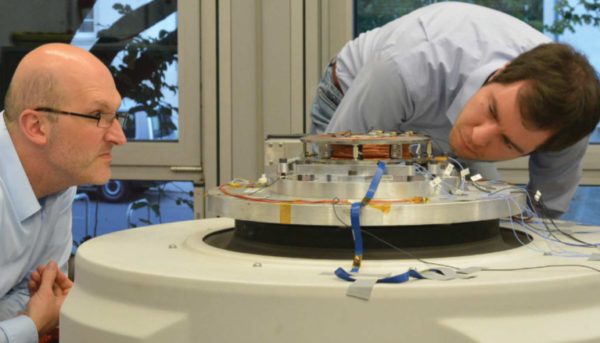
The Simcenter testing team has put together a series of Fundamentals of Performance Engineering webinars. These free on-demand webinars cover the basics in a variety of applications from acoustics and sound source localization to the basics of modal analysis. In addition to the free online webinars, there is the Xcelerator Academy online platform, which offers on-demand and instructor-led classes to holders of a Siemens academic license ID. The testing curriculum was created in collaboration with Professor Chuck Van Karsen from Michigan Tech. Core testing topics include:
- Characterizing system properties and performance attributes
- Identifying and quantifying external forces
- Measuring and predicting how a system or structure responds to external forces
- Controlling the response of a system using external forces
You can still get your hands dirty
Don’t worry – even with all these online learning options, there are plenty of opportunities to practice your newly acquired know-how. Many universities and summer schools provide fun, team-based challenges and projects like the EV project Kettering University. Another example is the Idaflieg Sommerschule, where German students attended a summer school to work on innovative ideas in the aviation industry. Specifically, they worked on flutter design improvement. A team of 30 future engineers instrumented a glider to acquire data using a Simcenter SCADAS XS to analyze how much the structure was subjected to various aerodynamic forces.
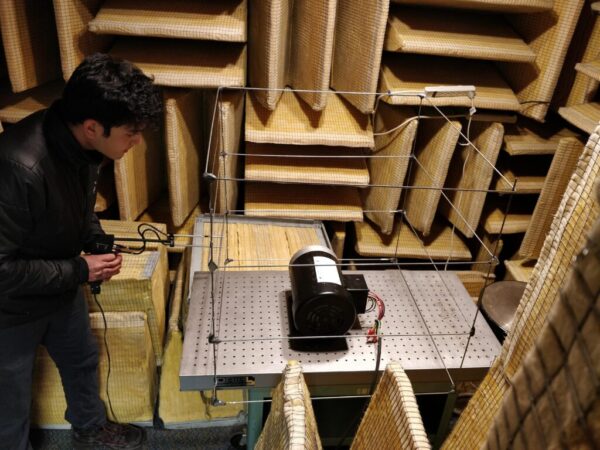
Send out the CV or apply for a PhD program?
Although there are still lots of job opportunities out there for testing engineers, it is not surprising that many students opt to specialize with an industry-specific masters, PhD and research work after graduating with their first degree.
For his PhD, Enrico Risaliti was involved the ANTARES European research project. (ANTARES or Advanced Training and Research in Energy Efficient Smart Structures is a partner project with the University of Leuven (KU Leuven) and Siemens Industry Software in Belgium.)
“Within ANTARES, I worked on developing a new model-based virtual sensing method combining test and simulation. This method will potentially enhance the development phase of a new vehicle in regards to durability. More specifically, the method will enable engineers to virtually measure the loads transmitted from the road to the wheels by combining physical measurements and numerical models.”
Another PhD candidate, Mariano Alvarez Blanco, joined a project where Thales Alenia Space partnered with Siemens to explore new tools and methods for acoustic testing in the space industry.
“My research entails the development of methodologies and at strategies for MIMO acoustic control, as well as the investigation of vibro-acoustic phenomena that sometime happen during the qualification tests.”
Both engineers admit that the research direction was a logical step in their engineering education. According to Mariano Alvarez Blanco, “The main motivation for applying to the Marie Curie fellowship at Siemens was the strong link I noticed between the project and my background. As a university student in Argentina, I acquired experience in research and environmental acoustics. Later, during an internship in Switzerland, I was trained to conduct dynamic tests on composite structures and perform modal analysis. Such insights into structural and acoustical testing later proved to be a valuable asset for the project.” at
More about Simcenter testing educational opportunities?
- Fill in the grant form to get more info about how our Simcenter in-kind grants could help your school.
- Check out our website for the full educational resources overview
- More stories: here, or here with The University of Pretoria uses Simcenter to help mining companies achieve lower sound levels and here with International University of Denmark uses Simcenter to test wind turbine blade longevity

